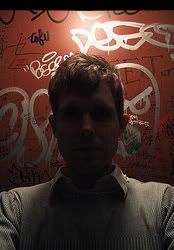INTERVIEW - Katherine Dunn on Geek Love and How Monsters Are Made
 Katherine Dunn's novel Geek Love does things to your brain that can never be undone. It's one of those delicious reads where you recoil from the gruesome details while savoring every morsel of character development, until eventually you lose the ability to tell which are which. It's on my short list of books that I think would be just as significant and relevant if it was published today -- although I get a kick out of the idea of it being written during the Reagan administration.
Katherine Dunn's novel Geek Love does things to your brain that can never be undone. It's one of those delicious reads where you recoil from the gruesome details while savoring every morsel of character development, until eventually you lose the ability to tell which are which. It's on my short list of books that I think would be just as significant and relevant if it was published today -- although I get a kick out of the idea of it being written during the Reagan administration.
Dunn sent me the answers to a few questions (as well as a remarkable author photo snapped by Carole Delogu-- click the image at left for an unobstructed view) for my latest Monsterfest feature, where you can see which scary movies get under her skin. However, as her new work of nonfiction, One Ring Circus, is coming out next year, I knew I'd have to turn in my interviewing badge unless I made sure to talk to her about boxing. I present to you the following mementos that I wasn't able to shoehorn into my AMC piece:
TB: I've noticed that many younger readers have become obsessed with Geek Love and find it to be a powerful commentary on adolescence. Did you anticipate this?
KD: No. I loved writing the book but most of the time I couldn’t imagine anyone reading it. I figured I’d run off a few copies at Kinko’s and force them on my friends. My notion was to light a fuse in my brain and ride the blast as far as it would take me. And try not to be boring in the process.
The fact that some people have responded strongly to the book continues to amaze me. And please me.
TB: I read your defense of Mike Tyson after the Holyfield match. It seems that when a person becomes notoriously "monstrous," others quickly become reluctant to attribute his or her actions to logical or human motivations. Why do you think this is?
KD: It’s interesting, isn’t it? I suspect it goes back to the constant need to define ourselves by denying what we hope or wish we are not. And of course we define our enemy—whoever that may be at the moment—as all that other stuff. War propaganda works the same way. It’s always those other guys doing the torture and extermination, tossing the babies up and catching them on bayonets, and what not. Those other guys don’t have any respect for…decency…civil rights…human life…the Geneva Conventions. They’re not like US. They’re different. They’re monsters.
Probably the ability and the need—to identify and brand the stranger, the mutant, the enemy, has ancient roots and is a crucial survival trait but, as usual, we humans get carried away. Moderation was never our forte.










No comments:
Post a Comment